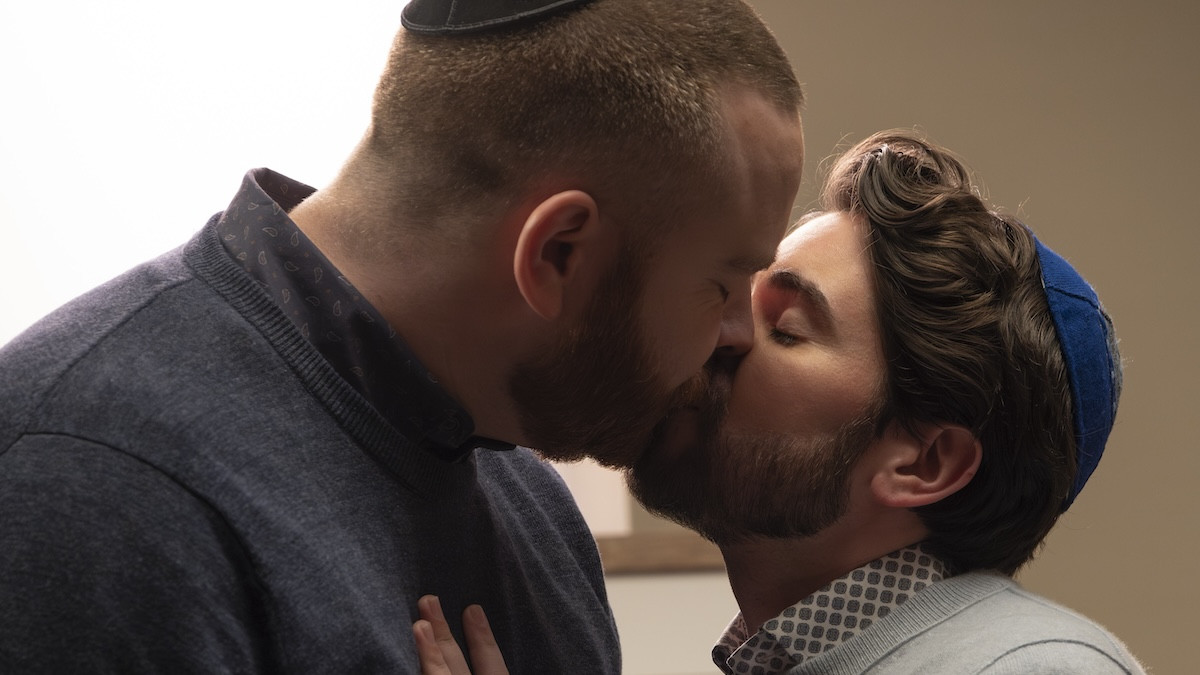The latest episode of ABC’s “The Good Doctor” has left many viewers in shock and mourning after a major character, Dr. Asher Wolke, was tragically killed off. This dramatic turn of events, occurring midway through the show’s final season, has sparked numerous questions about the reasons behind this heartbreaking decision. Asher’s death, depicted as a result of a hate crime, has added a dark and significant layer to the medical drama. This article delves into the reasons behind Asher’s departure, exploring both the narrative choices and the real-world context that informed this pivotal storyline.
The Shocking Episode and Asher’s Fate
Episode 5 of Season 7, titled “Who at Peace,” became a turning point for “The Good Doctor” as it delivered a devastating blow to fans. The episode intricately wove together Asher’s journey of reconciling with his Jewish upbringing and his blossoming relationship with his partner, Jerome. Asher, portrayed by Noah Galvin, spent the episode assisting a dying patient in arranging a wedding, a process that inadvertently led him to confront his own past and feelings about his religion. The narrative also hinted at a significant step in Asher and Jerome’s relationship, with Asher contemplating proposing to Jerome as their two-year anniversary approached.
However, the episode took a tragic turn after the wedding. While escorting a rabbi back to the synagogue, Asher encountered vandals. Initially, it seemed Asher had successfully deterred them. Yet, in a shocking and brutal climax, the vandals returned, violently attacking and killing Asher just as Jerome was waiting at a restaurant, ready to propose. This sudden and senseless act of violence not only ended Asher’s life but also abruptly cut short a beloved character’s journey and potential future.
 Giacomo Baessato and Noah Galvin as Jerome and Asher in "The Good Doctor" Season 7, highlighting their relationship before Asher's tragic death.
Giacomo Baessato and Noah Galvin as Jerome and Asher in "The Good Doctor" Season 7, highlighting their relationship before Asher's tragic death.
Noah Galvin’s Departure: The Actor’s Choice
According to series writer Adam Scott Weissman, the decision to kill off Asher was primarily driven by Noah Galvin’s desire to explore new opportunities beyond “The Good Doctor.” In an interview with TheWrap, Weissman confirmed that Galvin’s wish to move on from the series prompted the writers to create an exit for his character. This revelation provides a key piece of the puzzle, indicating that Asher’s departure was not solely a narrative choice but also a consequence of the actor’s career aspirations.
While the departure of an actor is a common occurrence in television, the manner in which Asher was written off has generated significant discussion. The writers were faced with the challenge of crafting a meaningful and impactful exit for Asher, considering his established character arc and relationships within the show.
Addressing Real-World Issues: Hate Crimes and Representation
Beyond the practical reason of the actor’s departure, the writers of “The Good Doctor” also saw Asher’s death as an opportunity to address pressing real-world issues. Weissman explained that the show aimed to shed light on the alarming rise of antisemitic and anti-LGBTQ+ attacks in the United States. By depicting Asher’s death as a hate crime, the series sought to bring attention to these forms of prejudice and violence, making them more tangible and impactful for viewers.
Weissman emphasized the intention to make these issues “real” for the audience by having them happen to a character they cared about. This approach aligns with the show’s history of tackling sensitive and relevant social issues through its medical storylines and character narratives. Asher’s storyline in this episode specifically highlighted his struggle to reconcile his identities as both a Jew and a gay man, a conflict that many viewers may find relatable and poignant.
Avoiding the “Bury Your Gays” Trope: A Conscious Decision
The decision to kill off a queer character, particularly in a tragic manner, inevitably raises concerns about the “bury your gays” trope – a recurring pattern in media where LGBTQ+ characters are disproportionately killed off, often to further the stories of heterosexual characters or to evoke tragedy. Weissman acknowledged that the writers’ room was “conscious” of this trope and took steps to avoid perpetuating it in a harmful way.
He credited showrunner Liz Friedman, who is herself a member of the LGBTQ+ community, for guiding the writers in crafting the episode with sensitivity and awareness. The intention was to ensure that Asher’s death, while tragic, also served as a “heroic moment” where he embraced his full identity and acted to protect a sacred space, rather than simply being a victim of circumstance. This nuanced approach aimed to provide a more meaningful and less trope-driven portrayal of a queer character’s death.
 Freddie Highmore in "The Good Doctor", hinting at the show's focus shifting after Asher's departure.
Freddie Highmore in "The Good Doctor", hinting at the show's focus shifting after Asher's departure.
What’s Next for “The Good Doctor”? The Aftermath of Asher’s Death
The preview for the following episode of “The Good Doctor” indicates that Asher’s death will have a significant impact on the remaining characters. A memorial service is expected, and the emotional fallout from the tragedy will likely be explored as the series progresses towards its finale. Weissman hinted that the aftermath of the attack and Asher’s death will be a key factor in shaping the trajectories of other characters, particularly Jerome.
As “The Good Doctor” enters its final episodes, Asher’s death serves as a major turning point, prompting reflection on themes of identity, prejudice, and loss. While the decision to kill off Asher was undoubtedly a difficult and controversial one, it was rooted in both practical considerations and a desire to address important social issues within the context of the show’s narrative. The impact of this event will undoubtedly resonate throughout the remainder of the final season, shaping the emotional landscape for both the characters and the viewers.

